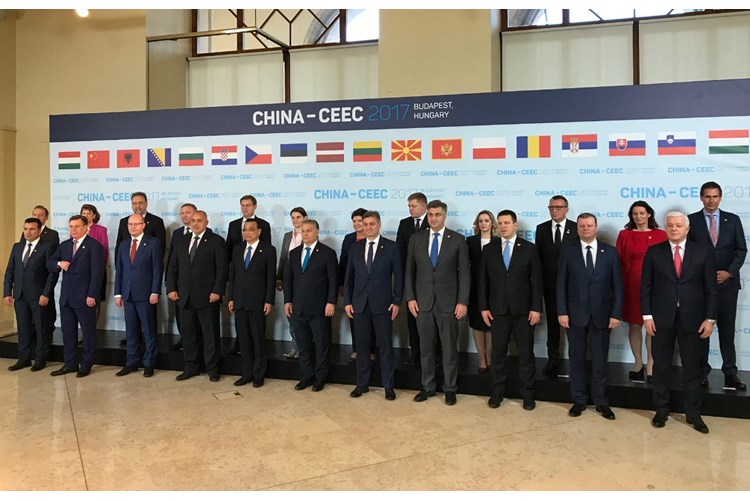


He told reporters the sixth CEEC-China summit was an opportunity to summarise the achievements of this initiative, launched in 2012. He voiced confidence that his meeting with Chinese PM Li Keqiang in the afternoon would result in concrete ways of advancing Croatian-Chinese economic and trade cooperation.
The Chinese ambassador to Croatia said recently that China's trade with the rest of the world was US$ 3.6 trillion. Last year's trade with CEEC countries within the 16+1 initiative totalled $58.7 billion, while with Croatia it totalled $1.5 billion. China sees the initiative as an integral part of the One Belt, One Road project.
Plenkovic said Croatia was recording a high rise in the number of Chinese tourists, expecting over 200,000 in 2018, and that next year, most likely in spring, Dubrovnik would host a meeting of tourism ministers in the 16+1 and China format "so that we can confirm the interest of Chinese investors in Croatia's tourism and position ourselves."
The Croatian Chamber of Commerce will open an office in Shanghai this week as yet another signal for "advancing overall trade," which has increased in recent years, he added.
China has arranged a EUR 30 million investment in the Krapinske Toplice spa resort, while China's Camel company, which makes batteries for e-cars, is said to be planning to invest in Croatia's Rimac Automobili company.
Judging by last year's memorandum of understanding on cooperation in ports and port industrial parks, Croatia is looking forward to even bigger investments.
Asked about China's interest in the construction of Peljesac Bridge, Plenkovic said China "is showing a lot of interest in this part of Europe, so it's no surprise that they also made a bid for building Peljesac Bridge."
The summit in Budapest was opened by Hungarian PM Viktor Orban and Li, who announced investments of over EUR 2.5 billion, including EUR 2 billion by China Development Bank, while the rest is to come from a joint investment fund and be invested in CEEC.
The meeting was attended by Croatia, Albania, Bosnia and Herzegovina, Bulgaria the Czech Republic, Estonia, Hungary, Latvia, Lithuania, Macedonia, Montenegro, Poland, Romania, Slovakia, Slovenia and Serbia.
PM says Croatia-Hungary relations shouldn't be reduced to INA-MOL relations
Announcing his meeting with Orban on Tuesday, Plenkovic said Croatia-Hungary relations must not be reduced to the relations between their energy companies INA and MOL. He said it was necessary to look at the big picture "and find things that bind us", such as Croatia's minority in Hungary and Hungary's in Croatia. About 50,000 Croats live in Hungary and he was due to meet them in the afternoon.
Plenkovic said Croatia maintained that it was necessary to either buy out MOL's interest in INA or find a strategic partner. "We are proceeding with the selection of international consultants who can help us analyse and evaluate the company and how to acquire MOL's stake. As for Hungary's willingness to sell, it hasn't changed. We want the process to be prepared well."
Regarding Hungary's blockade of Croatia's entry to the Organisation for Economic Co-operation and Development, Plenkovic said, "I expect long term support from both Hungary and Slovenia. It's unacceptable of EU member states, which should support each other, to slow down the process. I will insist on this."
Hungary said in September it was blocking Croatia's OECD entry because of the state of MOL's investments in Croatia and Croatia's treatment of MOL CEO Zsolt Hernadi. Slovenia says it is blocking Croatia's OECD entry because Croatia is refusing to accept a border arbitration ruling.
Plenkovic met with Slovenian PM Miro Cerar on the fringes of the Budapest summit and reporters asked him if they had reschuduled a meeting planned for September which Slovenia cancelled. "I expect Miro Cerar to come to Zagreb by the end of next month," he said.
He said European Commission President Jean-Claude Juncker said last week the Commission was generally willing to help facilitate dialogue between the two countries. "In my opinion, however, Slovenia and Croatia, as two friendly countries, have to show responsibility and sit at the table" and only then possibly ask for help, he added.
Text: Hina